I began this inquiry by reading an article entitled “Stamping Out Poverty as well as Books? How Librarians can Support Development” published by The Guardian. This article explained that there are more than 230 000 libraries in developing countries around the world and they “increasingly offer public access to the internet and all of the information resources it can provide. This is fundamental to understanding the potential they offer in terms of empowering people to meet their information needs” (Hamilton, 2013). It also mentioned award-winning library projects in Nepal, Bhutan, Serbia, Kenya, and Uganda, as well as a library/business partnership in Ghana. I decided to focus my research on Ghana.
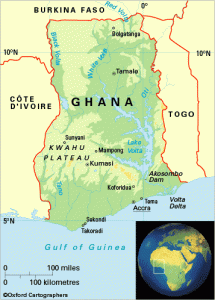
There are quite a few library projects in Ghana including the Books for Africa Project (forafricalibrary.org) and the African Library Project (www.africanlibraryproject.org). Both these projects service many African countries and essentially help with the logistics of getting books from other countries such as Canada, the United States and the United Kingdom. Volunteers host book drives and then have the books shipped to various communities in Africa. “Most rural areas do not have libraries and many rural schools lack textbooks. There is a great need for well organized and stocked libraries, with reading activities to encourage and enhance reading skills. Without educational opportunities in the rural areas, families move to overcrowded cities where urban poverty is common” (Books for Africa Library Project, n.d.).

This is a wonderful initiative and many of these projects have had tremendous success in providing community-run free public libraries to rural communities in Ghana and other countries of Africa. Ghana, in an effort to increase literacy rates, has created the Ghana Library Authority. Rami Baitie, the Reading Ambassador for the GLA says that many people find reading difficult in Ghana. She says, “I discovered that in this country, it’s very difficult to get people to actually pay attention and say yes, I’ll read that book. Now, people don’t have to read textbooks, they can read fictions, read anything. My job is to just make them aware so they start reading something. Start with the Daily Graphic and move on from there” (Make use of libraries in the country – Ghana Library Authority to Ghanaians, 2019). Providing books is certainly one way to increase literacy but there are challenges associated with this. Many of the books that these libraries receive are cast-offs from more priveleged nations. These are the books that we have weeded as they are no longer relevant or useful. People who find reading difficult may need more to encourage them to practice reading. Beyond that, people need basic ICT skills which these libraries, though appreciated, will not afford them.
Digitizing books as well as providing internet access is becoming another option in libraries across Ghana. “Over the past decade, Ghanian libraries have made substantial progress towards automation and digitization now offers new opportunities for collecting, organizing, and disseminating locally produced knowledge” (Tritt, 2007). This will not only increase engagement, but will provide hands-on learning opportunities to those who receive lessons in ICT without the use of technology. Incredibly, ICT is a core course in rural Ghana despite the fact that they do not have access to computers. In fact, “several of [the students] have neither seen nor touched a computer” (Street Library: Unlocking the Power of Literacy, 2015).
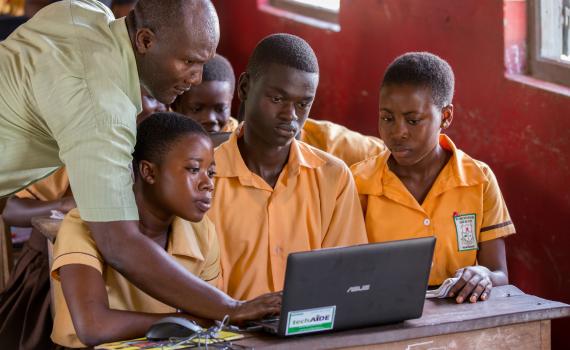
Volunteers at groups such as Street Library are partnering with international aid organizations such as the Global Fund for Children to help provide access to both traditional books and mobile technology. They do this using three models: a book chest, a mobile van, and a reading hub. The book chest is a collection of approximately 150 books of different reading levels and genres housed in an airtight and waterproof storage container. The mobile van is essentially a travelling library that services many communities in rural Ghana. It started as a van filled with books (having stemmed from one man’s initiative of travelling from community to community with the trunk of his car filled with books). Since its inception, however, Street Library has partnered with Tigo Ghana (a network provider) to provide solar powered energy to these vans. These mobile libraries now provide Ghanian schoolchildren with e-readers and laptops in order to offer “children from rural communities a shot at obtaining a decent education digitally” (Ghana’s First Digital Library Hosted at the Back of a Van, 2015).

The Reading Hub is a more permanent structure. Not unlike a kiosk, it offers shade and seating and well as storage for books and technology. These Reading Hubs provide a place for community members to meet and engage with the resources as well as each other.

Street Library is not the only group providing mobile technology to rural Ghana. Electronic Information for Libraries (EIFL) is a global organization that aims to provide technology and information to developing countries. On their website, they say that while the rest of the world is learning and communicating in new and exciting ways due to digital technology, “billions of people around the world are still unable to reap the benefits due to factors such as the high subscription costs of electronic scholarly content and legal barriers to accessing, using and sharing information, or because they do not have access to technology” (EIFL, n.d.).
Source: https://www.youtube.com/watch?v=CV8lRpueUys
There are many and varied library projects in Ghana – more than I have covered in this blog and certainly far more than I had anticipated – and I had not imagined that computers and other mobile technology would be available to students in rural Ghana. Having access to computers so that students may learn valuable ICT skills hands-on rather than in the abstract is the best way to improve communications and digital literacy in developing nations but there continue to be many roadblocks that make this availability difficult. Moving groups such as Street Library to include more internet in addition to their digital books in order to teach digital literacy would be the direction in which these projects need to grow, but it seems as though Ghana is a country with some very effective library models that should be adopted by other developing nations.
Works Cited:
Books for Africa Library Project, (n.d). Retrieved from: forafricalibrary.org
Ghana’s First Digital Library Hosted at the Back of a Van. (2015, 2 June). Next Einstein Forum. Retrieved from: https://nef.org/2015/06/02/ghanas-first-digital-library-hosted-at-the-back-of-a-van/
Hamilton, Stuart. (2013, 12 March). Stamping out Poverty as well as Books? How Librarians can Support Development. The Guardian. Retrieved from: https://www.theguardian.com/global-development-professionals-network/2013/mar/12/libraries-power-global-development
Make use of libraries in the country – Ghana Library Authority to Ghanaians, (2019, 7 March). Retrieved from: https://www.ghanaweb.com/GhanaHomePage/NewsArchive/Make-use-of-libraries-in-the-country-Ghana-Library-Authority-to-Ghanaians-728727
Street Library: Unlocking the Power of Literacy (2015, 14 September). Retrieved from: http://streetlibraryghana.org/programs/literacy/
Tritt, Summer. (2007) Report on Digital Libraries in Ghana. Retrieved from: http://www.indiana.edu/~libsalc/african/ALN125/125DigLibsGhana.html
Featured image source: www.alamyimages.com
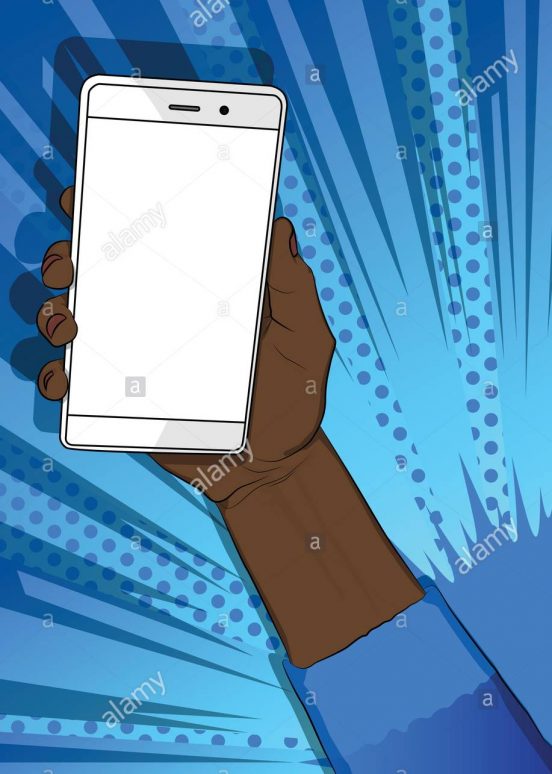
 Follow
Follow

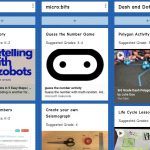


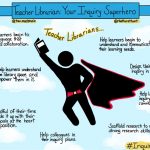

Abi
February 29, 2020 — 1:15 pm
Access and interest are great ways to promote and increase literature engagement. Its unfortunate that there are places that don’t have access to engaging books (or books in general). I love the idea of bringing in books that individuals are interested in and the idea of the solar powered moving library. With the use of technology, the materials that can be offered increases.
sarah verv
March 3, 2020 — 6:37 pm
It was really interesting reading about the travelling library and how that started! Your blog drove home how privileged it is to have computers and iPads for most students in our schools.
Darcy
March 3, 2020 — 10:13 pm
This is an excellent, thoughtful and well-developed post. I appreciate the way that you focused in on Ghana, and then provide a broad perspective. I agree with you that they have created some creative and effective library, literacy and technology solutions that are excellent models for others.